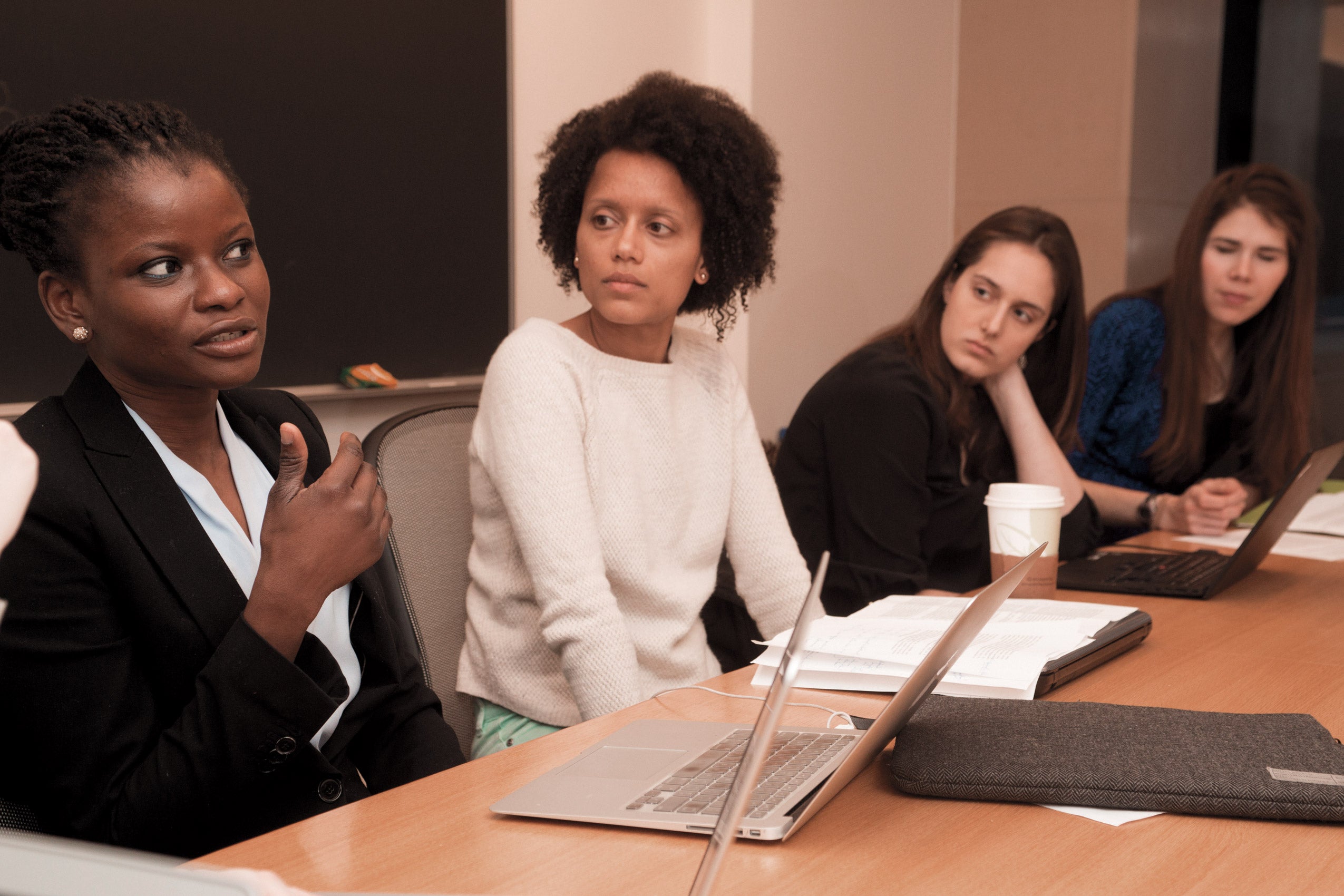The Global Anticorruption Lab, taught by HLS Professor Matthew Stephenson ’03, offers law students an unusual opportunity to hone concise writing skills through the crafting of blog posts that are read and commented on by high-level stakeholders around the world.
Now in its third semester, the lab is a hybrid between an independent study and a seminar. Students are required to produce independent research on anti-corruption topics and write four brief but substantive posts for the Global Anticorruption Blog. Weekly meetings are devoted to group discussions of students’ research ideas, with classmates and Stephenson providing in-depth critiques in a workshop format.

With participants from a wide variety of backgrounds—including LL.M.s from South Korea, Egypt, Indonesia and Nigeria—who have an interest in anti-corruption, the lab generates a range of posts, from one on money laundering in Vietnam to a comparison of four recent U.S. governors prosecuted for corruption. The blog is followed by readers at the World Bank, in the U.S. government, at the U.N., and at major NGOs such as Transparency International, Stephenson says, and some of the student posts have received significant attention.

The lab itself has a following. This year, Elizabeth Loftus ’16, like several of the students, is taking it for the second time. (One student is taking it for a third time.) A vice president of the executive board for the Harvard Law and International Development Society, Loftus has written posts on topics such as allegations of protectionism in China’s enforcement of its anti-corruption laws and the impact of the Nigerian government’s relationship with the military on the fight against Boko Haram. She says she has learned even more than she expected to—from Stephenson, from her classmates and from working on the posts: “When you put your work out there for the world to see, you want to make sure your argument is as airtight as possible. So a 700-word blog post actually represents hours of research.”

Since it is both a blog and a lab—he chose the “lab” moniker to distinguish it from more traditional seminars—Stephenson wryly refers to his course as a “blab.” Each post must make a complete point in a concise way. That brevity gives him the time to provide meaningful feedback on drafts, including comments on the style and clarity of the writing.“It’s much more feasible for me to give detailed feedback on their writing and to do hands-on editing than is possible with a 40-page paper,” he says.
“I’ve been incredibly impressed with all critiques I’ve gotten,” says Melanie Emmen ’16, who has posted on corruption in soccer’s governing body, the Fédération Internationale de Football Association, among other topics. “It’s wonderful to see how generous people are in the time they spend and how much thought goes into [their comments].”
The blog is followed by readers at the World Bank, in the U.S. government, at the U.N., and at major NGOs such as Transparency International.
Stephenson was encouraged to start the Global Anticorruption Blog by Professor Jack Goldsmith, who co-founded Lawfare, and more recently OnLabor with Professor Benjamin Sachs, blogs which include student posts. Stephenson expanded on this idea by creating a course around his blog and having students focus on analysis as opposed to posting summaries and news roundups. He, in turn, inspired Professor Intisar Rabb as she developed her Digital Islamic Law Lab, and there are now other courses that include student blog posts, such as Professor Jon Hanson’s Justice Lab, and the Food Law Lab at HLS’s Petrie-Flom Center for Health Law Policy, Biotechnology, and Bioethics, directed by Professor Jacob Gersen.
Stephenson has found that students take their posts very seriously, in part because they know the blog contributes to actual policy debates around the world. “Students know they’re writing for a small but meaningful audience.”
Emmen agrees. “One thing that’s really cool is that the blog has international readership,” she says. With the credibility of the HLS name, “we’ll hear back from people who know what they’re talking about and have worked really hard on these issues.”
***
A selection of recent GAB titles; Read these posts and explore others at globalanticorruptionblog.com or follow on Twitter at @anticorruptBlog
Why Do People Care So Much About the Proposed FCPA Compliance Defense?
When Transparency Isn’t the Answer: Beneficial Ownership in High-End Real Estate
Gecko v. Crocodile, Round Three: Indonesia’s Ongoing Fight between the Police and the KPK
Who Calls the Shots?: Boko Haram and the Legacy of Military Leadership in Nigeria
Why International Double Jeopardy Is a Bad Idea
Demand-Side Prosecutions: Be Careful What You Wish For
There Is No “East Asian Paradox” of Corruption and Development
